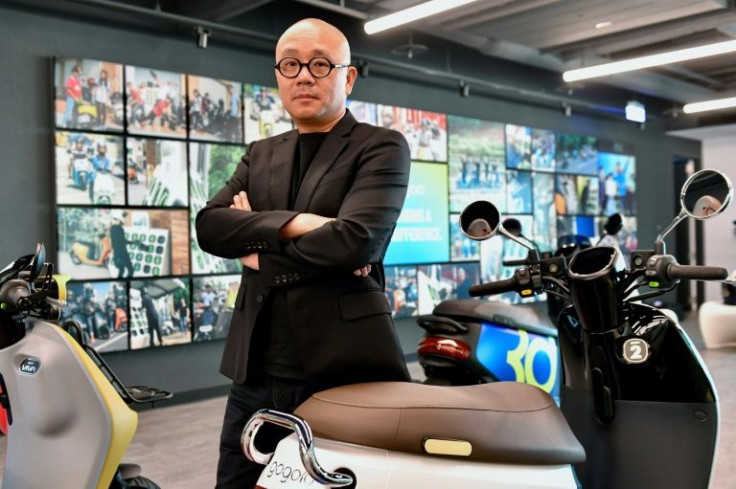Taiwan's Gogoro Unveils Its First India-Made Electric Scooter, Plans To Expand Battery Swapping Ecosystem

KEY POINTS
- Gogoro announced that its first India-made electric scooter will initially be available to B2B customers
- The consumer availability of the electric scooters will take place by the second quarter of 2024
- The company will also be investing in establishing its battery swapping stations in India
Taiwan's Gogoro has unveiled its first made-in-India Smartscooter, and is planning a multi-billion dollar investment to establish a battery swapping infrastructure across the South Asian country.
The electric vehicle manufacturer unveiled the Smartscooter called the CrossOver GX250 on Tuesday, and said the electric scooter had a certified range of nearly 69 miles (111 kilometers). The electric scooter is being manufactured at Gogoro's plant in the state of Maharashtra. It will initially be available to B2B customers before its consumer availability in the second quarter of 2024.
Gogoro also announced it was open to making a multi-billion dollar investment to develop the battery swapping infrastructure by 2024 across India, which was currently one of the fastest-growing electric vehicles markets in the world today.
"We are at the cusp of a dramatic change in the global urban transportation landscape, and with its more than 250 million mopeds and motorcycles India is well positioned to lead the shift to sustainable consumer and B2B transportation," Horace Luke, founder and CEO of Gogoro, said in a statement. "The Gogoro CrossOver series embodies everything our brand has come to stand for and the new made-in-India CrossOver GX250 is optimized for riders in India with more seating space, greater storage and better ground clearance."
While speaking to reporters about establishing its battery swapping stations in India, Luke said Gogoro was aiming at building 120 such stations across the country by mid-2024 and also establish a battery manufacturing plant in the city of Pune.
"Pan Indian, I see a lot more money going into other gigantic markets such as Bengaluru and Delhi-NCR. They will require a lot of capital as well. There is no number I probably should put on the table other than it will be more than $1 billion on the network side of the business," he told reporters.
In Taiwan, which is only a small fraction of the Indian market, Gogoro has 1.3 million batteries in circulation at its 12,000-13,000 battery swapping stations, Luke said.
"That has taken an investment of $650-700 million. India is 24 times that of Taiwan in terms of volume sales," he said. "I am not expecting to deploy it (battery swapping stations) pan Indian, in every nook and cranny. If I can deploy in the top 10 cities, I will be happy."
India is among the top automobile markets in the world in terms of sales and has seen the demand for EVs increase in recent years. Carmakers and policymakers have undertaken various initiatives to encourage drivers to switch to green alternatives, and this has contributed to this rising demand.
The two-wheeler segment makes up a major part of India's automotive sector due to their affordability and accessibility. Today, electric two-wheelers make up a majority of the sales of EVs in India and are expected to account for around 60-70% of new sales in India by 2030, according to Mckinsey.
© Copyright IBTimes 2024. All rights reserved.






















